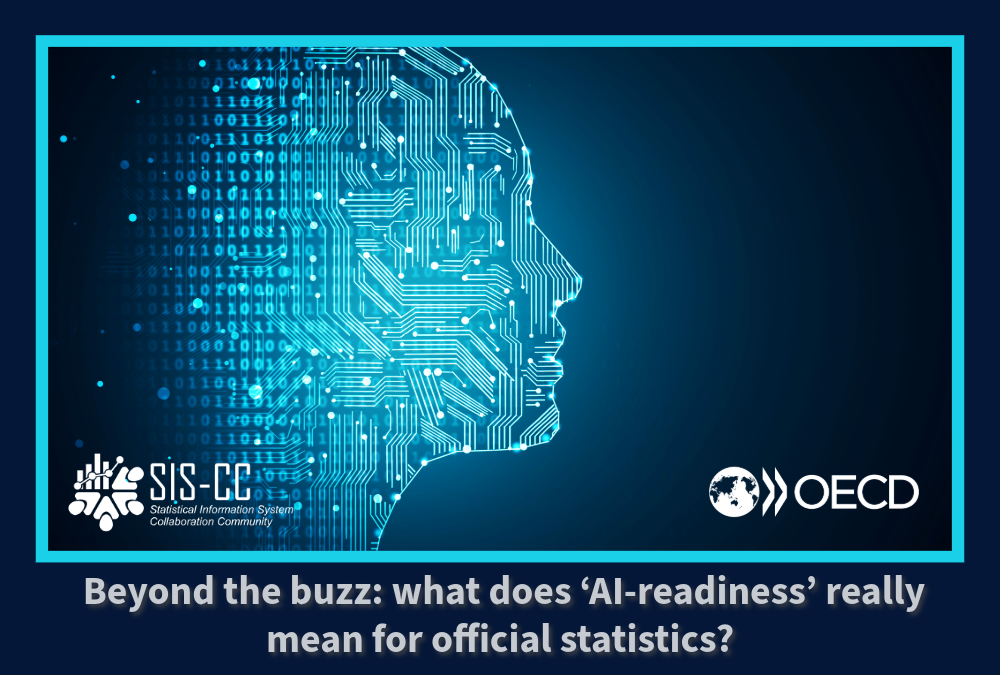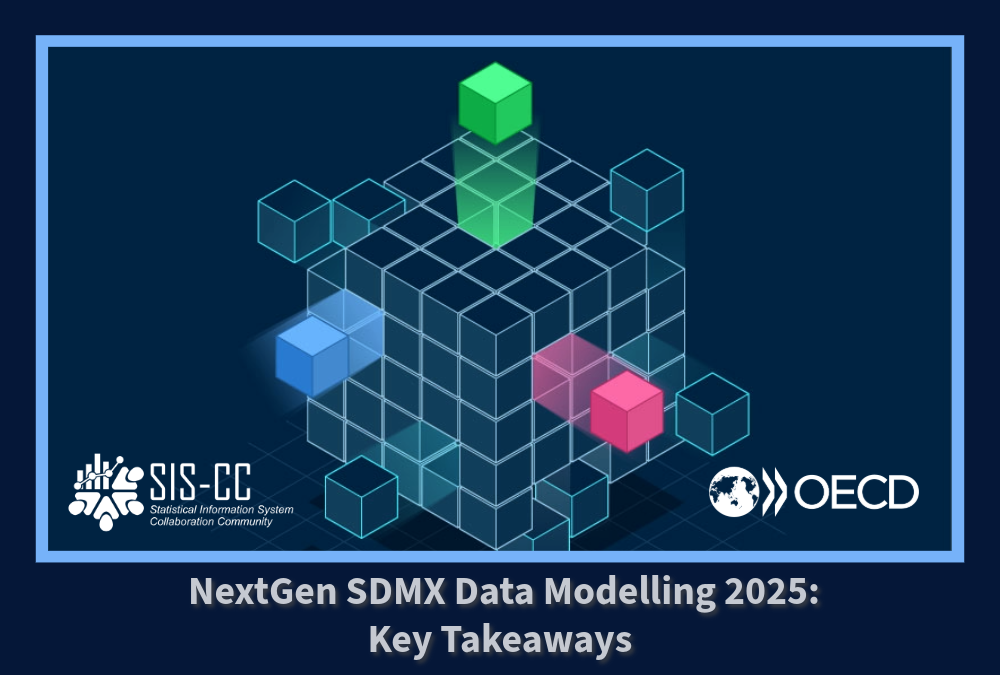Jonathan Challener, SIS-CC Community Manager participated in the United Nations World Data Forum (UNWDF), in Hangzhou, Zhejiang Province in China, 24-27 April 2023 and shared his main takeaways from the global biennial event.
The UNWDF started in 2017 in Cape Town, South Africa, being driven since by the Cape Town Global Action Plan (CTGAP). The aim of the UN World Data Forum is to spur data innovation, nurture partnerships, mobilise high-level political and financial support for data, and build a pathway to better data for sustainable development.
The CTGAP was followed by the Dubai Declaration (2018) calling for an innovative funding mechanism to support the implementation of the CTGAP; and more recently the Global data community’s response to Covid-19 (2020) and Bern Data Compact for the Decade of Action on the Sustainable Development Goals (2021) on how official statistics and National Statistical Offices (NSOs) position themselves during Covid-19 and then in the wider data ecosystem generally.

This years forum, hosted by the National Bureau of Statistics of China, focused on data partnerships and data innovation, something at the heart of what our Community strives to achieve. The rich agenda gave a lot of promise to build on previous forums and provide a solid platform to drive forward the 2030 agenda, especially the data gaps that exist to achieve the Sustainable Development Goals (SDGs). There was much discussed on new techniques, citizen generated data, satellite remote sensoring, drone crop/livestock data collection and monitoring, and of course artificial intelligence (AI).
However, I strongly feel that this year the forum fell a little flat on two key aspects:
- Inclusion of the country coordinators of National Statistical Systems (NSS), namely National Statistical Offices (NSOs). Although some NSOs did participate in person, very few were in attendance and only a handful of national government representatives from other NSS entities joined.
- Lack of discussion on statistical infrastructure that provides the foundation for everything else to produce more and higher quality statistics, including data that feeds into each of the 17 SDG goals. This has been a chronicle weakness in the past decade: donors are interested in investing in particular data verticals (gender, climate change, etc.) but do not necessarily realise that, until the time a proper statistical infrastructure is in place, the sustainability of ‘vertical’ investment is questionable.
In my experience working with a variety of countries and data players over the past decade, establishing a sustainable statistical infrastructure requires you to:
a) Map and understand better the data-flows to support the development of a stronger National Data Backbone, facilitating for data to flow according to a decentralised, yet orchestrated model. This approach can then enable the role of Data Stewards to emerge for NSOs.
b) Consider the creation of common tools by creating open-source assets for multiple agencies and countries versus trying to do it alone in parallel (build versus buy versus collaboration).
c) Push the agenda for the adoption of common standards (such as SDMX) to enable interoperability, and ease of data reuse.
d) Focus more on building local capacity to reach toward long-term sustainability and self-service versus parachuting in experts with a short term focus.
Of course it will take all actors of the data ecosystem and new innovations, such as those very much discussed at the forum in Hangzhou to even come close to being able to produce the data needed to report on each of the goals by 2030. But without NSOs at the discussion table, and without giving them the right tools and capacity, then the likelihood of achieving this objective got further away.
At the SIS-CC, we actively use and promote open data tools and standards to strengthen development data work within and outside the community with a rich and successful history of collaborative capacity building in low-to-middle income countries. Working in tandem with its members, other agencies, and national partners, we deliver tools and training that have strengthened the management and exchange of development data in many countries, and in some cases even radically transformed their capacity.
As stated in the SIS-CC 2020-2025 Strategy:
“The SIS-CC believes that the community of official statistical organisations must continue to join forces to co-innovate and co-invest in the next generation of practices and solutions to meet common challenges, thus enabling the stronger organisations to emulate each other and mutually leverage their investments, while supporting the lower capacity organisations to catch up and bring in their qualitative contribution and creative ideas into the fold.”
Paul Schreyer, Chief Statistician, Director of Statistics and Data, OECD
The SIS-CC installed a booth within the Exhibition Hall showcasing its work and that of its members. I was joined by Yves Jaques, Chief of Frontier and Tech Unit, UNICEF, Denis Grofils, Statistics Advisor Data Systems, Pacific Community, and Shutong Ding, Statistical Knowledge Management Officer, ILO. With the participation of 1000 in-person data experts from national and international statistical organisations, private sector and civil society, the forum provided an excellent opportunity to invite participants to discover our work and our values, demonstrating clear and practical examples of how the Community is delivering “common solutions to common problems through co-innovation and co-investment” that contribute to make the data ecosystem stronger and more inclusive.

The 4th UN World Data Forum closed with Hangzhou Declaration charting accelerated progress in the implementation of the Cape Town Global Action Plan for Sustainable Development Data.
Many thanks to our hosts, the National Bureau of Statistics of China, and the city of Hangzhou, for the excellent organisation and warm welcome provided for the 4 day event.
The next forum, hosted by Departamento Administrativo Nacional de Estadística (DANE-Colombia), will take place in Medellín, Colombia provisional dates are 18 to 21 November 2024. We look forward to seeing you all there!


